Hearing Jesus talk in Turkmen made a huge impact on Silas.
After the fall of the Soviet Union, “my father got one of the first VHS players in my village. We got ahold of the movie Jesus. I heard Jesus speak my tongue. It became real, not just head knowledge.
Silas (a fake name provided on his interview on Voice of the Martyrs), of Turkmenistan, was taught atheism in school by the communist-trained teachers. He was Muslim by birth and culture. But he had serious questions about God, if there was a god at all, he says.
“As I grew up and became a teenager, I tried to find answers to my questions,” Silas says. “Why is there death? If there is Allah, why is he so far away? How can I stand before him?”
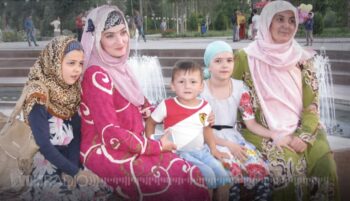 Plagued by unanswerable questions, Silas was settling on atheism. “In the communist schools, the teachers taught you that there is no god,” he says. “Since I couldn’t find the answers that satisfied my soul, I thought atheism makes sense.”
Plagued by unanswerable questions, Silas was settling on atheism. “In the communist schools, the teachers taught you that there is no god,” he says. “Since I couldn’t find the answers that satisfied my soul, I thought atheism makes sense.”
But then his brother-in-law one day shocked him by announcing he had become a Christian. Silas had no context to grasp what Christianity was. He thought it was probably connected to Eastern Orthodox churches.
“That statement really shocked me,” he says. “From my understanding Christianity was mainly practiced by the Russian and Slavic people.”
 Then he watched the Jesus movie, only recently allowed into the country after communism fell. It was dubbed into his language, Turkman.
Then he watched the Jesus movie, only recently allowed into the country after communism fell. It was dubbed into his language, Turkman.
Suddenly, his questions were answered. Death had come into humanity because of the Fall of Adam and Eve, but Jesus came to remove sin. God was not far but close – he loved the world so much he sent his only son into the world, so that whoever believes in him shall not perish, but inherit eternal life.
“Very few people had a VHS player right after the fall of communism. It was a rare commodity,” Silas says. As he watched the movie about the life of Christ and everything he did, his perfect holy life, his death and resurrection, his questions were answered.
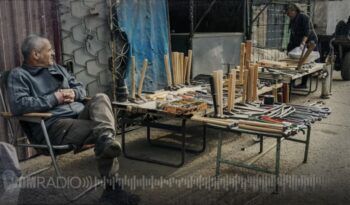 “From a very young age, I was scared of death. I was worried about my sins. How can I stand before the judgment of God? How can we solve the dilemma of death? All was answered in Jesus Christ.”
“From a very young age, I was scared of death. I was worried about my sins. How can I stand before the judgment of God? How can we solve the dilemma of death? All was answered in Jesus Christ.”
The Bible’s account of Heaven was particularly appealing because Islam offers scant hope of making it into Paradise.
“The concept in Islam is (passing to eternity) there is a bridge thinner than a hair, sharper than a sword, beneath there is a fire,” he says. “If you have enough good works, if you followed everything, maybe, maybe you make it across the bridge. There is no guarantee.
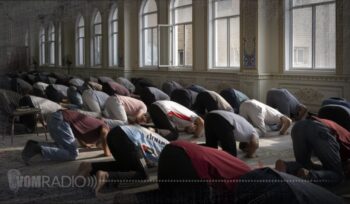 “Many people live hopeless,” he adds. “That was my condition. But Jesus answered my questions. He said you were worried about death, but I died for your sins, I conquered death through my resurrection. He gives eternal life to everyone who believes.”
“Many people live hopeless,” he adds. “That was my condition. But Jesus answered my questions. He said you were worried about death, but I died for your sins, I conquered death through my resurrection. He gives eternal life to everyone who believes.”
Overcome by emotion, Silas received Jesus, just like his brother-in-law. “I found peace and joy like I never experienced before.”
Like the Samaritan woman who told her whole village about Jesus, Silas began to testify about the wonders of salvation to everyone in his village.
“I started talking Jesus nonstop,” he says. His mother accepted Jesus, as did many of his friends.
 But others reacted negatively.
But others reacted negatively.
“In some cases, there was anger, there was a pushback,” he says. “They accused me of being a Russia priest and a spy.
Silas says that he and a handful of others were the first Christians in Turkmenistan.
He got a Gideon’s New Testament and began to learn about God. He and the few Christians who hung out with him devoured Bible study and learned theology. The group grew to 60.
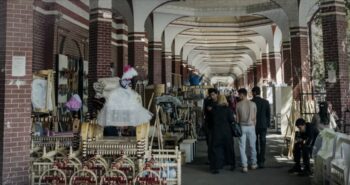 People in his village spread rumors about him in hopes to slow down the progress of the gospel.
People in his village spread rumors about him in hopes to slow down the progress of the gospel.
Later, Silas moved to the capital city to study international law and became a lawyer. He worked in a local church.
He landed a job in the Ministry of Foreign Economic Relations but eventually quit to dedicate himself fulltime to the gospel.
Again, persecution arose, this time “severe.”
First, police conducted raids on their churches, then they banned meetings. As Silas was a lawyer, he stood up to the abuse of power, knowing the Constitution of Turkmenistan guaranteed freedom of religion.
The cops hemmed and hawed.
“We follow orders,” they said. “There are unwritten orders from above.”
Silas refused to back down and continued holding church services.
In response, the authorities intensified the persecution, Silas says.
An article was published in the newspaper alleging Silas was a criminal.
“They tried to smear my name, to scare people away from me so that they wouldn’t associate with me,” he explains.
They banned Silas from living in the capital city, an order he ignored.
They raided his apartment. The police threw his wife and two kids, aged 3 and 4, out of the apartment and into the street, along with all their belongings.
“They banned us. We were like homeless. We didn’t know where to go,” Silas says. “My wife was crying with the two babies. All they wanted was me to stop doing activities, stop planting churches.”
Silas tried fighting. Turkmenistan’s constitution provides for secular government with religious freedom. But what’s written on paper didn’t correspond to practice in everyday living.
Silas looked for and confronted the reporter who slandered him in the newspaper. “Why did you write these things about me?” he asked. “You don’t even know me.”
The writer responded that he based his account on secret police reports only.
Silas asked his lawyer to sue for libel. But she warned him not to mess with the higher powers behind the article. “They may create a car crash,” she warned.
Silas began to get arrested. The first time, he was thrown into a cell with many other people, but when the authorities saw that he would simply win them to Christ, they put him in isolation.
Once, when he was driving to the village, a semi truck slammed into his car with all his family inside. It careened off the embankment and rolled down the hill. His wife was five months pregnant.
“I almost lost my wife,” Silas says. They did lose the baby.
Silas was arrested again. This time, instead of the usual interrogation, they beat him.
“A bunch of people jumped on me and started beating me,” he says. “They choked me and tortured with electric shock. They brought in torture tools. It lasted for several days. It was scary, hard and painful.”
They deprived him of sleep and threatened they would kill his wife.
But the international community caught wind of his predicament and began pressuring the Turkman government to release him alive and healthy. His torturers started to change. The U.S. Ambassador pressed for Silas’s release along with other church leaders.
But Silas realized the release was only a ploy to appease the U.S. Ambassador. He realized the secret police would eventually hunt him down and kill him. His death would be under mysterious circumstances.
So Silas, with his wife and children, fled the country, first to Russia, then Norway and now the U.S.
Eventually, he launched a radio and T.V. program to broadcast the good news of Jesus into Turkmenistan and other Muslim countries from abroad.
If you want to know more about a personal relationship with God, go here
About the writer of this article: Alexia Hess studies at Lighthouse Christian Academy near Inglewood in Los Angeles.

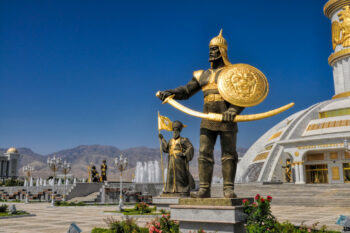



[…] “In some cases, there was anger, there was a pushback,” he says. “They accused me of being a Russia priest and… Read the rest: Christianity in Turkmenistan […]
Comments are closed.